I was hospitalised with psychosis but it turned out to be encephalitis
Rugby star Abi Burton, 23, from Yorkshire, became manic and violent and was sectioned under the mental health act in 2022 with psychosis, less than a year after representing Team GB in the Tokyo Olympics – but it turned out that a rare brain condition was causing her behaviour.
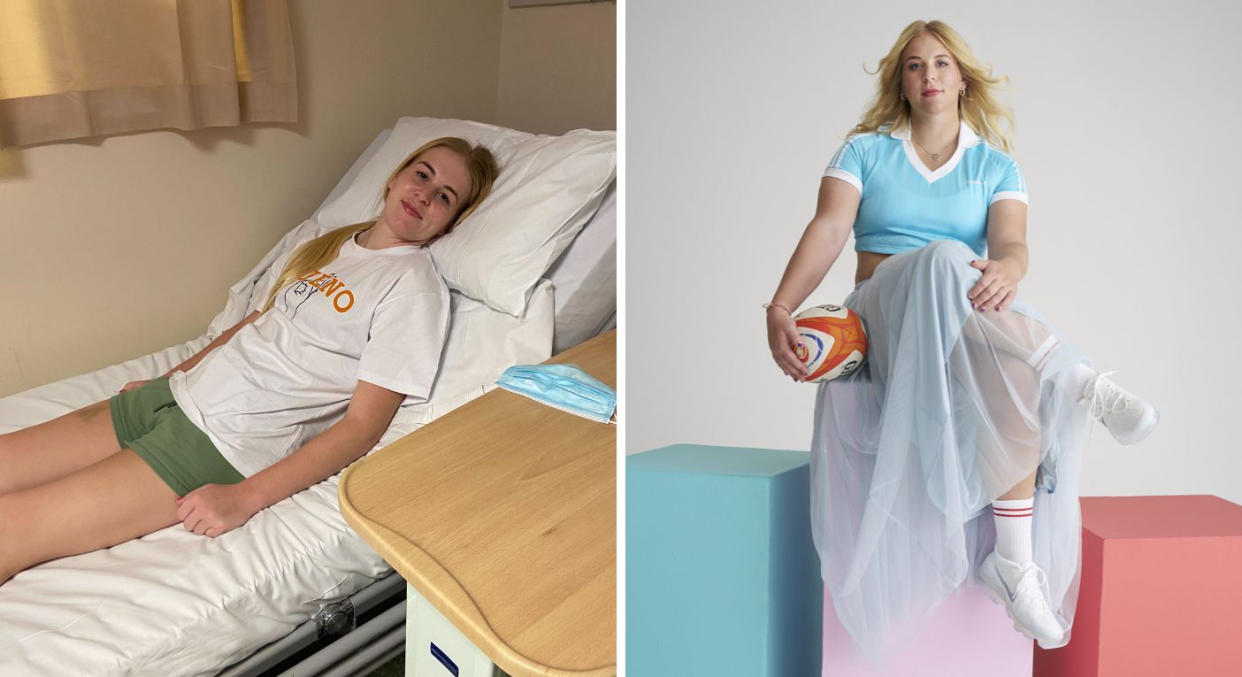
When I think about what happened to me last year, it doesn't feel like it was my life. It was May when I started acting strangely. My mum said I’d have conversations where I would look straight through her vacantly. I felt really unhappy, but I couldn't understand why – it wasn't to do with rugby because I was playing well and preparing to take part in the Commonwealth Games, and I had no history of depression. I knew there was something wrong, but had no idea what.
My last proper memory before everything goes blank is a tournament in Toulouse, but there are things from that trip that I don’t recall. I couldn't remember who we played or how I played. My teammates have said, "Do you remember telling us you wanted to quit rugby?" and I have no recollection of that at all. We had another tournament, the London Sevens, straight after, and I don't remember any of that either.
Alarming symptoms
I will never get those memories back. The doctors explained to me, further down the line once we found out what was wrong with me, that, because my brain was so inflamed, I couldn't make new memories. I could still play rugby – my body knew how to do that because I've been doing it for years – and I was still driving. I'd already learned those skills but, if somebody told me something new, my brain wouldn’t process that information.
Mum told me that sometimes my seizures were up to six minutes long, I can’t imagine how it must have felt for my family to watch it happen.
My parents came to the conclusion that I was depressed. After the London Sevens, there were a few other tournaments I hadn't been selected for, so my mum put it down to that and. took me to the GP who put me on antidepressants. I was so drained. I’d go to training and I just couldn't do it, I was so off the pace.
Then, on the 15th of June, I had my first seizure. It was terrifying for my parents, who took me to hospital where the doctors checked me out and said I was fine and it would be unlikely to happen again. I had another seizure the next day. My poor brother had to put me in the recovery position and hold my head. Mum told me that sometimes my seizures were up to six minutes long, I can’t imagine how it must have felt for my family to watch it happen.
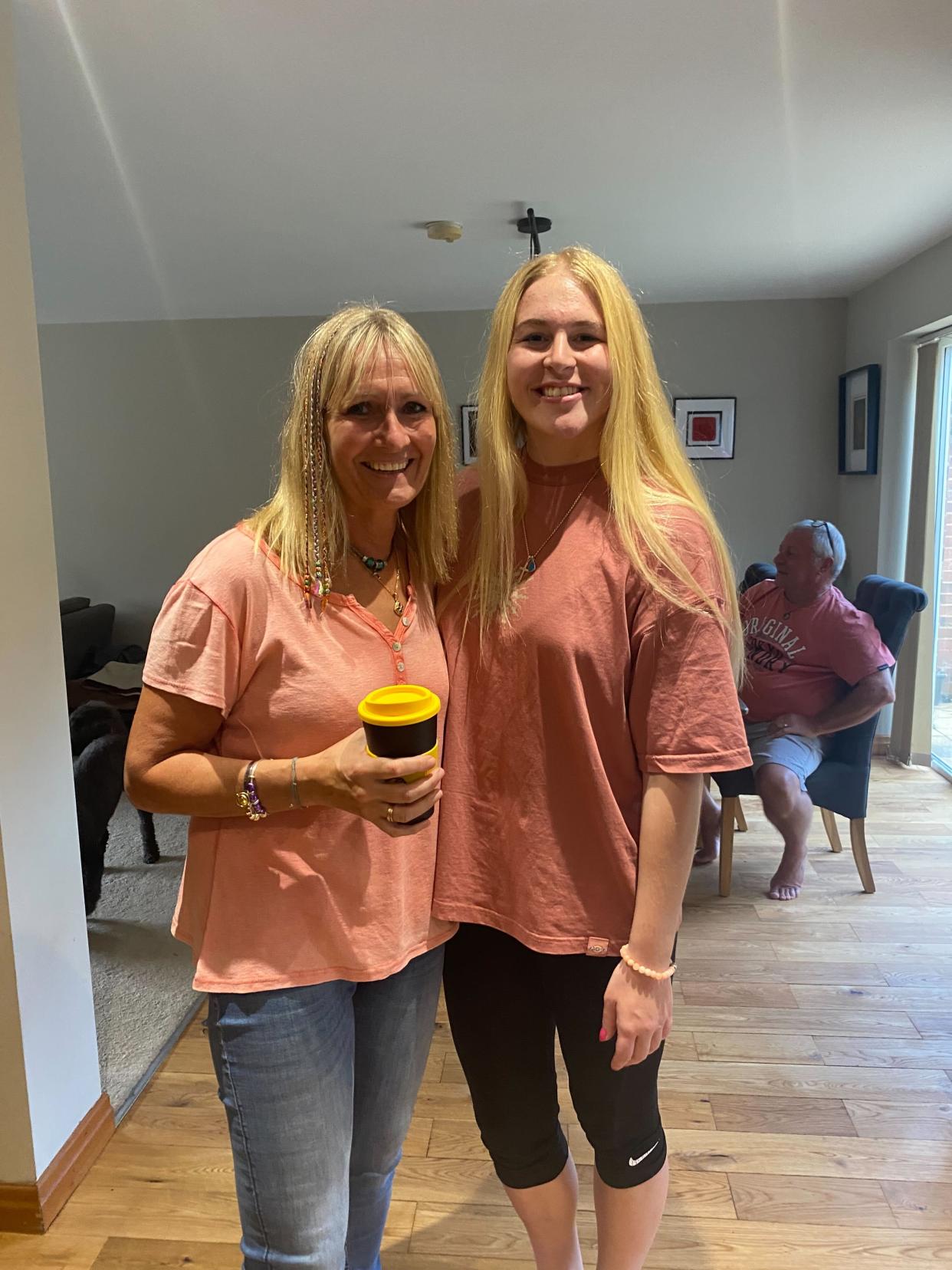
From depression to aggression
After the seizures started, my demeanour changed from depressive to manic. I wouldn't let anybody near me and became physically aggressive towards Mum and Dad. I picked up bricks and was trying to throw them at my dad, I pulled the spindles off the bannisters in the house and was trying to hit my mum with them, and I punched her in the face a few times. It was awful for them. They couldn’t let me out of the house because they didn’t know what I was capable of, and took the keys away so that I couldn't get out.
They couldn’t let me out of the house because they didn’t know what I was capable of, and took the keys away so that I couldn't get out.
The home treatment team came out and decided I wasn't fit to stay there because of the manic behaviour. They sectioned me in a psychiatric hospital and put me on antipsychotic drugs. I remember absolutely nothing about this, I couldn't even tell you what the hospital looks like. It was frustrating for my mum and dad who couldn't understand what was going on.
Doctors were throwing around that they thought I had bipolar, then schizophrenia, then stress-induced psychosis, and questioning if I was taking drugs. Some days I was so bad that they wouldn't let my parents see me, other days they’d take me for a walk around the hospital and mum told me they thought about taking me and running away. They just didn't know what to do.
I had multiple seizures a day, from fitting seizures to absence seizures, where you blank out and stare into space and have small movements like lip smacking and face twitching seizures. My job was quite pressured l because we were coming up to the Commonwealth Games, so doctors put it down to stress.
The right diagnosis at last
I was there for over three weeks, until a researcher from NHS Mid Yorkshire Trust read my case. He took my blood and it came back positive for anti-NMDA receptor encephalitis, an autoimmune disorder that causes brain inflammation. I was moved to a neurology unit where they'd only ever had one other patient with the same condition.
They told my parents they needed to put me in a coma to treat me. It was horrendous for them, making that decision.
They told my parents they needed to put me in a coma to treat me. It was horrendous for them – my dad had to make that decision and I don't think he ever would’ve forgiven himself if I hadn’t woken up, but it was the only way – my behaviour was so manic and aggressive that I wasn't taking any treatment – they’d put cannulas in my arms but I ripped them out and they’d tried to give me maximum sedation but it wasn’t working because of my stature.
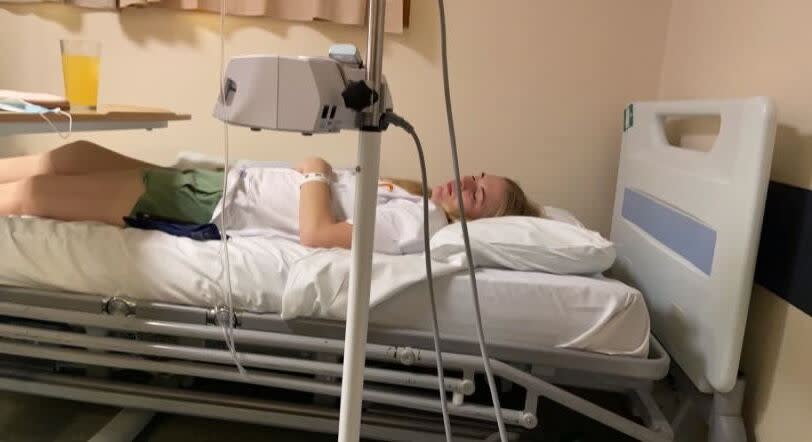
While in the coma, I was given rituximab, a chemo-based treatment, to stop the seizures, steroids to help the inflammation and plasma exchanges which strip the plasma out of your body and generate new plasma, basically ‘cleaning’ my blood. I was in a coma for over three weeks before they woke me.
My first memory is when Mum and Dad came to see me. I didn’t know what had happened but I knew I hadn't seen them for a long time and I cried my eyes out.
My first memory is when Mum and Dad came to see me. I didn’t know what had happened but I knew I hadn't seen them for a long time and I cried my eyes out. There's a photo from that day in the ICU of me and my dad holding each other's hands and I've now got that tattooed on me. I will carry that with me for the rest of my life.
The road to recovery
One of the first conversations I had with my mum was asking if I’d missed the Commonwealth Games and telling her that I was going to the World Cup in October. My mum was like, "Abi, you can’t go to the toilet without somebody hoisting you out of bed, you can't do any of that!"
That attitude is what got me through. If I wasn't a bit delusional, I probably wouldn't have recovered as quickly. I had to work on my cognitive functioning to get back to reading and writing, but I'm super stubborn and, within five days, I was walking again, though I was too weak to get up the stairs. It was a shock when they weighed me. I was under 10 stone (65 kilos). That made me realise how bad things were – as a rugby player, I’m a unit for a girl, and usually weigh over three stone (20 kilos) more.
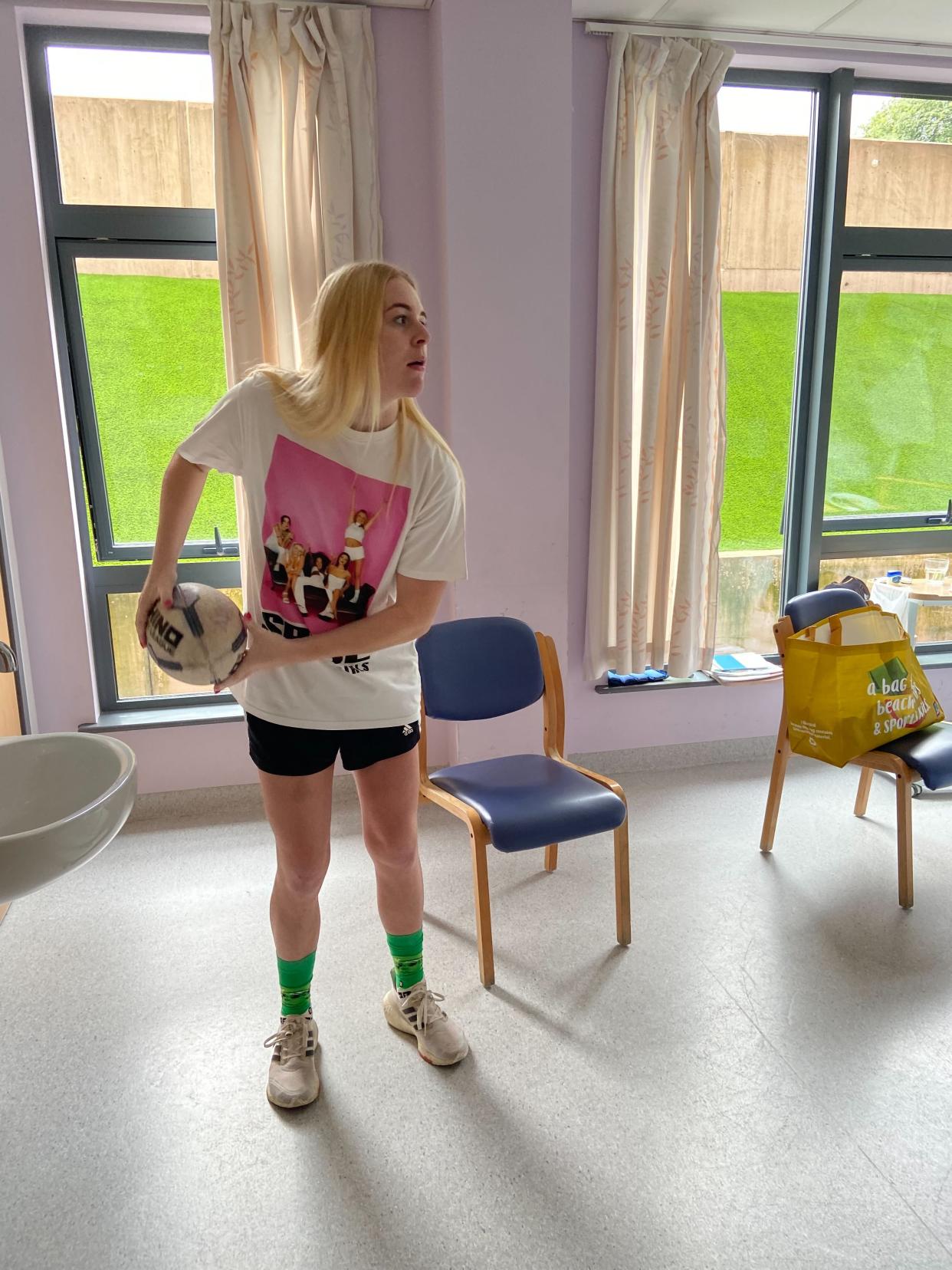
Getting my life back
I had a second dose of chemo, which made me feel 1000 times better, I felt like I could take on the world. I’d go to the physio room and lift tiny weights and use the therapy pool.
I left the hospital at the end of August and it was still a long route to recovery. I was put on an intensive rehab programme and the RFU supported me. I was allowed to play rugby again in January but I didn't do contact until March when I came off my seizure medication. My parents worried, but I think they were more scared of what it would be like if I didn't play rugby again.
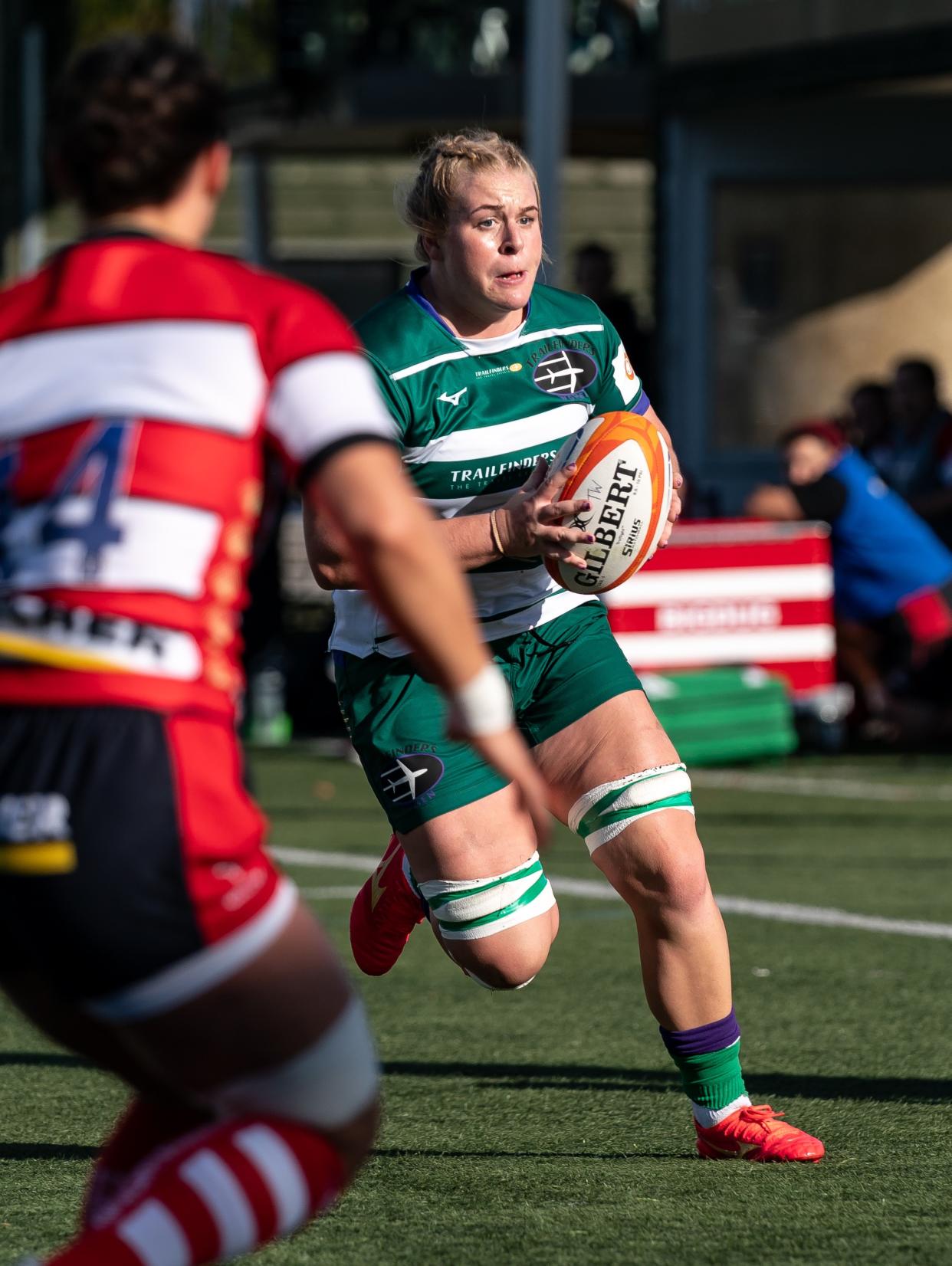
I made a return to competing at the end of March in the Hong Kong 7s tournament. I had a great group of people around me so it wasn’t a pressured environment, and I was so happy to be there. I cried as I ran out and thought, 'Oh my God, get a grip, or the other team will run straight at you!'
I made a return to competing at the end of March. I was so happy to be there. I cried as I ran out onto the pitch and thought, ‘Oh my God, get a grip.'
The Commonwealth Games hold a special place in my heart and it was upsetting that I never got to fulfil that dream, but I’ll be there for the next one and I’m looking towards the Paris Olympics. I still struggle to process everything that's happened. I still don't think I fully understand the effects it all had on my body, but I was determined not to let it stop me.
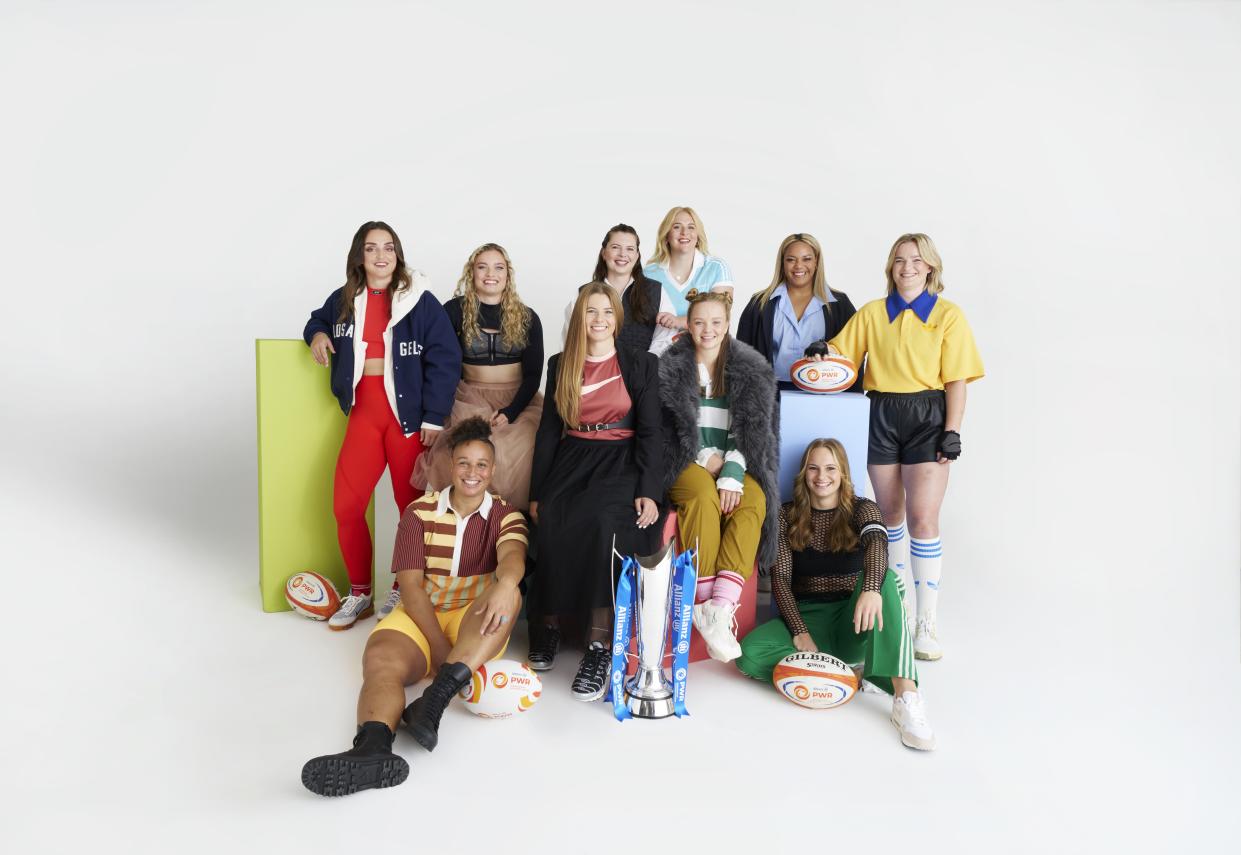
Abi is supporting Powered Differently, a campaign by Allianz Premiership Women's Rugby and Getty Images, capturing the stories of rugby players with a range of body types and ethnicities from PWR clubs across the UK. She says, "I've always wanted to help change the perception of women's rugby and what it means to be female in a very masculine dominated sport."


